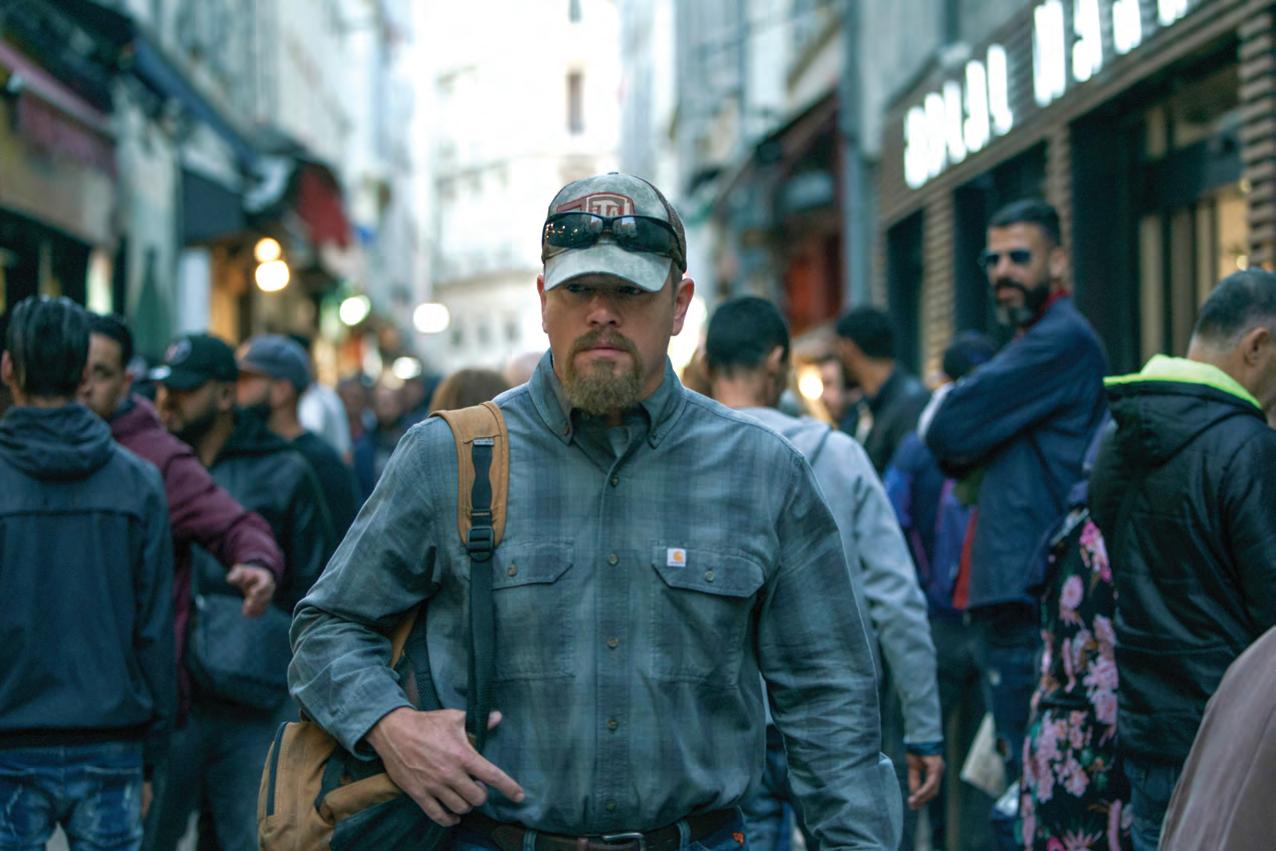
3 minute read
Clifford Brown Jazz Festival Turns 34
Jazzing up the Square Jazzing up the Square
34th Clifford Brown Festival keeps a proud Wilmington tradition alive
AWilmington summer tradition resumes after a one-year haitus due to COVID-19 as the 34th Annual Clifford Brown Jazz Festival returns to Rodney Square Aug. 4-8.
The event is the largest free jazz festival on the East Coast and is a tribute to Wilmington ‘s own Clifford Brown, who established himself as one of America’s greatest trumpet players despite being killed in a car accident at age 25. "After more than three decades, the Clifford Brown Jazz Festival stands as the crown jewel of Wilmington’s expanding music festival scene,” said Wilmington major Mike Purzycki. "While we very much regretted having to cancel the Rodney Square staged event last summer, our virtual event still showcased the amazing talents of our own local musicians, which made it an even more special event,” said City of Wilmington Cultural Affairs Director Tina Betz. “Still, there’s nothing quite like gathering together to experience live jazz in person, and we are ready to do it again this year.”
Performances will kick off at 5:30pm on Wednesday through Friday, at noon on Saturday and 1pm on Sunday.
Following is a list of performances in order of appearance:
Wed., Aug. 4
• Terell Stafford • Jazzmeia Horn • Kirk Whalum
Thur., Aug. 5
• Malina Moye • Lakecia Benjamin • Eric Benet
Fri., Aug. 6
• Grover Washington, Jr. Legacy Band • Gerald Veasley • Dianne Reeves with John Beasley, Romero Lubambo, Reuben Rogers and Terreon Gully
Sat., Aug. 7
• Jennifer Hartswick and Nick Cassarino Duo • Chien Lu • Clifford Brown Festival Orchestra featuring Maya Belardo, Nadjah Nicole, Darnell Miller, Jackie Browne, Tony “Big Cat” Smith, Skip Bordley and Stacy Harcum along with the members of the orchestra. • Jane Bunnett and Maqueque • Terri Lyne Carrington + Social Science with special guest Ms. Lisa Fischer • Kenny Barron Trio
Sun., Aug. 8
• Boysie Lowery Living Jazz Residency Graduates’ Concert • Raphael Xavier’s: The Musician & The Mover
4
STARS
µ µ µ µ µ
The Tragedy of Unintended Consequences

Family drama explores depths and limitations of good intent
By Mark Fields
Bill Baker, as portrayed by Matt Damon, is a familiar middleAmerican archetype: plainspoken, hard-working, devoted to faith and family. What some might call the salt of the earth. One can’t call him uncomplicated as we very gradually discover in the film that centers around his character, Stillwater. The viewer also learns as we follow Bill’s unfolding story that there are genuine limitations on the power of good intentions when a movie is grounded in real life rather than Hollywood fantasy.
When Stillwater opens, Bill is a struggling but earnest, unemployed Oklahoma oil worker. A lonely man, he lives a daily routine of mindless labor, takeout food, and terse conversations. He is a man of few words and an unsettled past. But we soon learn that Bill has another aspect to his life. His young adult daughter Allison (Abigail Breslin) is in prison in Marseilles, France, serving a sentence for the murder of her girlfriend, a crime she maintains she didn’t commit.
When the French legal system thwarts Allison’s chances of a reopened case, Bill undertakes an investigation on his own to clear his daughter in a city and country where he is a stranger, both to its language and to its culture. For a while, Stillwater plays out like an Okie rendition of Taken.
But after his efforts stall, the focus, and even the tone, of the movie unexpectedly shift. Now we are watching the unfolding of a sweet, modest domestic drama as Bill finds comfort and grounding in an accidental (and French) family. Captivated by a nine-year-old girl — perhaps a reminder to him of a younger Allison — and her actress mother Virginie (Camille Cottin), Bill seems to be making up for his earlier parental failures back in his hometown of Stillwater.
However, as William Faulkner said, “the past is not dead, it’s not even past.” And Bill and Allison’s pasts come roaring back to wreak havoc on the present. What seemed at the outset to be a straightforward mystery thriller, albeit one with drawling Plains accents, evolves instead into a disquieting and complex study of well-meaning but flawed characters. It also demonstrates the profound, irrevocable damage that can be caused by persons with the very best of intentions. ►










